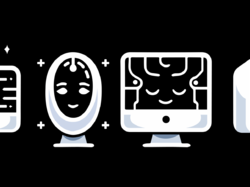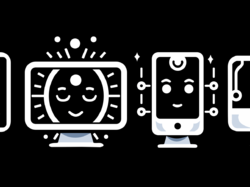
When you start your own business, you become master of your own schedule. You can finally give appropriate priority to the important things in life. If you’re working at home, that means that you’ll spend more time with family, with friends, cultivating a healthy life balance.
Right?
Color me naive, but I actually believed it. When I ventured out on my own to start my own company four years ago, I was certain that I was on the brink of a whole new world of flexibility. The bargain seemed simple: In exchange for giving up the security of a corporate paycheck, I would get a smorgasbord of freedoms in my working life—of time, of place, of creative control.
Well, two out of three ain’t bad. With freedom of place and creative control, I can work on what I want, where I want, and that’s no small thing. However… managing my time as an independent software developer has proven a bit trickier.
When I started working at home full-time, my original expectation was that I would have trouble facing down distractions and getting to work. I’d be tempted by my bookshelf, my television, my corner café, laundry, grocery shopping, whatever. But I had it backwards. It’s been hard to establish a sharp boundary between work and everything else, but as it turns out, work is winning this particular border dispute.
I work 12-hour days, seven days a week, and my last day off was nearly six months ago. Hmm, something seems out of whack.
Work is winning this particular border dispute.
Part of the trouble is that I love my work, which in itself is not a bad problem to have. I find it absorbing, rewarding, irresistible. Because home life and work life share the same roof, work is just a few feet away every second of the day and night. Putting it away isn’t always easy.
The time difference doesn’t help. E-mail arrives from customers at every hour of the day. The Aussies are 12 hours ahead of me, the Californians nine hours behind. Somewhere, somebody’s got a question, a suggestion, a request for help.
I’m devoted to my customers, and they tell me that I give them unusually good support. It’s a huge priority for me. But I’m not sure that I’m doing them or me any great favors by keeping this zany schedule. I need to recharge. Taking a little time off will ultimately make me more productive and, more important, make my world bigger.
And so today marks the beginning of a novel experiment. I’m going to start taking two days off per week. In some parts of the world, I hear that they call this a “weekend.” I have no idea what I’m going to do with myself, but I have a hunch that this will sort itself out.
This is going to sound ridiculous (in fact, it is ridiculous), but I expect that this is going to be hard for me to do cold-turkey. Work habits, like all habits, are tough to break. You have to change expectations of yourself and of what you want from your days.
But I have high hopes. With a bit of effort, web entrepreneur Ryan Carson has even managed to craft a successful four-day workweek:
I thought the idea was ridiculous. How in the sam hill would we be able to get everything done? We have way too much to do in five days a week, let alone four.
And then it hit me: there will always be more to do. Working more won’t change that. In fact, working more is actually counter-productive. I was starting work everyday at 5:30 AM and working till 10:00 PM, but I still wasn’t done with everything. If I was working those extreme hours and still couldn’t keep up with my to-dos, then clearly working more wasn’t the solution….
So why is it important to work less? What’s the big deal?
The reason is that when you work less, it gives you more time to experience life and think; you can use the extra time to not only spend with people you love, take up hobbies, or invest in causes you believe in, but also to have ideas. Some of our best ideas have come while driving, gardening, reading, or painting on the weekend.
I salute Ryan’s three-day weekends, but I need to start with the basics: a nine- or ten-hour workday, five days a week, followed by two bonafide days off. Let’s see how it goes.
It’s a gray, rainy day in Paris, but on this first day off in months, the city has never seemed so appealing. I’ll see you Monday.





